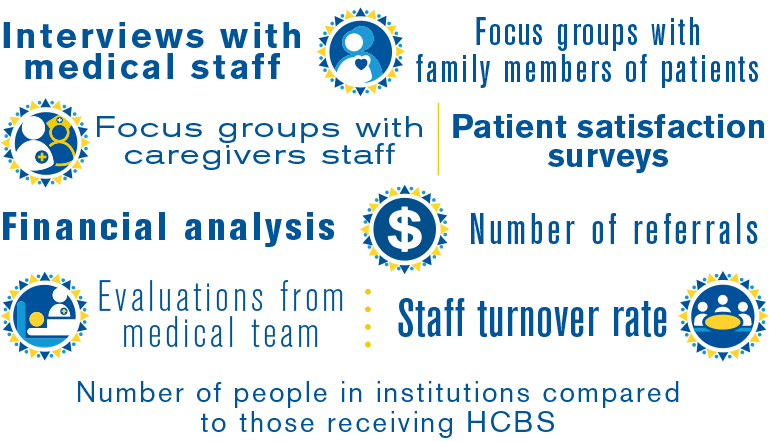Evaluation Steps

Evaluating your program supports its continued improvement and success. An effective program evaluation means:
- The results of the evaluation provide information to strengthen your program
- The evaluation asks the right questions, so you get the information you care most about
- The process for evaluating makes sense for your program's budget, number of staff members, and size, and is not too costly or detailed
- Data is gathered in a way that is fair and prevents harm to others (for example, you ensure that community members are able to complete surveys anonymously if they would like)
- The data you gather and report is accurate
Approaches to gathering data
Data simply means the information you collect to learn more about your program and how it is working.
The data gathered for your evaluation can include any information that will help you answer the important questions about your program. For example, you might gather information on staff turnover rates to better understand staffing successes and challenges or collect opinions from the family members of people your program serves to measure satisfaction with services.
You can gather data in different ways. For example, to collect family members’ opinions, you might ask them to complete a short survey or to participate in a focus group to share their answers to open-ended questions about the program.
Remember that as part of your evaluation, you can also use the data you collected during the needs assessment and SWOT analysis steps of program planning.
The appropriate ways to gather data vary based n the situation. Think about what fits best with your preferences and available resources, like time and money. It is often helpful to gather different types of data to provide a diverse, broad view of the topics you want to know more about. Some common forms of data collection are.

Evaluation steps
General steps for evaluating your program:
- Develop questions that you want your evaluation to answer, such as whether the program is meeting the planned objectives you chose during Step 2 of the LTSS Roadmap.
- Decide how you will gather information. Choose or create the data collection instruments you'll use.
- Set dates for completing certain steps, such as creating your survey, and set a due date for finishing the entire evaluation.
- Collect data that helps answer your evaluation questions. You should also refer back to data that you collected during your needs assessment and other planning steps.
- Study the data, focusing on answering your evaluation questions.
- Write a report on your findings.
- Share the report with your community and stakeholders.
More about evaluation
Below are several helpful resources to further guide you in planning for and conducting your evaluation.
- The U.S. Environmental Protection Agency's page about evaluation provides an in-depth definition of evaluation and lists different types of evaluation.
- An evaluation plan makes program evaluation easier and more efficient. See detailed steps provided by Community Tool Box for creating an evaluation plan.
- Using this guide from Better Evaluation, learn more about the best data collection approaches for each of your evaluation questions.
- In this step-by-step guide from Better Evaluation, see detailed steps for planning and managing an evaluation.
- This evaluation framework from Community Tool Box covers the how and the why of program evaluations.
- Animating Democracy's resource library provides many sources about program evaluation. You can search by keyword or browse through the contents.



